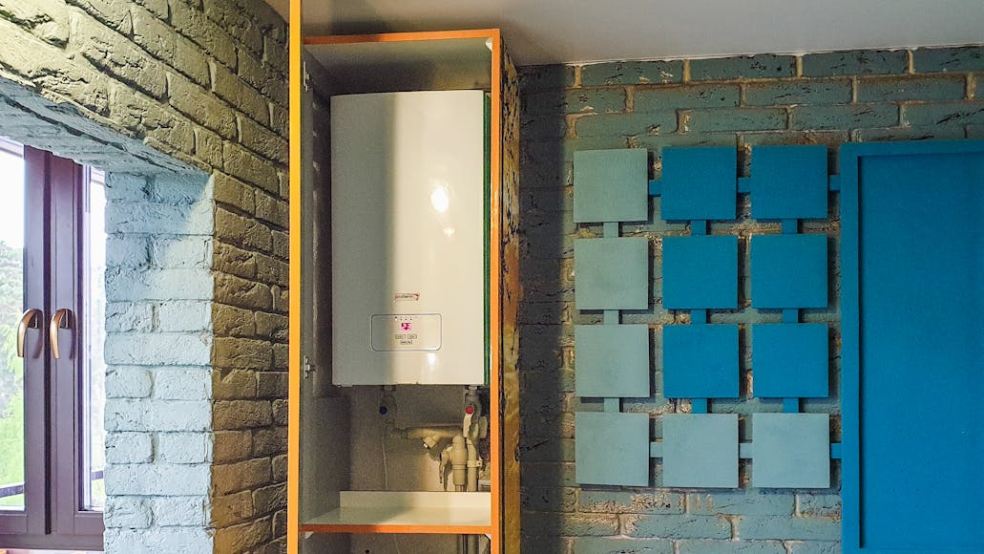
How to Choose the Right Energy-Efficient Water Heater for Your Needs
Energy efficiency is more than just a catchphrase; it’s vital to reducing utility costs and minimising one's environmental footprint. Choosing the right energy-efficient water heater can significantly lower household expenses and play a part in fostering sustainability. Advancements in water heater technology are continuously pushing boundaries towards more eco-friendly solutions, making it crucial to select a water heater that aligns perfectly with your household's specific needs. This guide aims to empower you with the knowledge needed to make an informed choice, contributing to cost savings and environmental sustainability.
Understanding Different Types of Water Heaters
When it comes to water heaters, there's a variety of options available, each offering distinct advantages in terms of functionality and efficiency:
Traditional Tank Water Heaters: These are the most common type, predominantly found in older homes. They work by continuously heating a reserve of water, which ensures a steady supply. While generally reliable, their continuous heating can be less energy-efficient, as they often heat water even when it's not needed.
Tankless (On-demand) Water Heaters: As the name suggests, these heaters warm up water on demand rather than storing it. This can be a more cost-effective option in the long run, as energy isn't wasted on maintaining a hot water supply when it's not being used. They can provide endless hot water with less energy consumption.
Heat Pump Water Heaters (Hybrid): These units stand out in terms of energy efficiency by utilising heat from the air or the ground to heat water. They can be more cost-effective over time despite higher upfront costs, offering greater savings by using less electricity than traditional electric heaters.
Solar Water Heaters: Operating through solar panels, these heaters use the sun's energy to heat the water, significantly reducing electricity use. They represent the pinnacle of environmentally-friendly water heating solutions and can drastically cut down on energy bills, though their effectiveness can vary based on the local climate.
Factors to Consider When Choosing a Water Heater
Selecting the right water heater involves more than picking the most energy-efficient model. Consider these critical factors:
Household Hot Water Demand: Assessing your household's water needs based on size and usage patterns is crucial. A smaller household with moderate use may find a tankless heater sufficient, whereas a larger family might still prefer the tank model to guarantee hot water availability during peak periods.
Energy Efficiency Ratings: Pay attention to the energy ratings provided with each device, as these can greatly affect your long-term energy consumption. Higher efficiency ratings typically mean lower utility bills.
Installation Space and Infrastructure: The existing space and infrastructure can limit or dictate the type of water heater that can be installed. Tank water heaters require more space, whereas tankless varieties can be installed in smaller areas.
Lifespan and Maintenance: Different models vary significantly in terms of lifespan and required maintenance. While tankless heaters generally require less maintenance, traditional tanks might need frequent inspections and servicing to ensure efficiency and longevity.
Comparing Energy Efficiency and Cost-saving Benefits
It's important to weigh upfront costs against potential long-term savings when selecting an energy-efficient water heater:
Interpreting Energy Efficiency Metrics: Consider the Energy Factor (EF) rating, which indicates the energy efficiency of a heater. A higher EF means better efficiency and thus, potentially greater savings over time.
Role of Insulation: Proper insulation helps prevent heat loss and optimises energy use in water heaters. Models with high-quality insulation can provide enhanced efficiency.
Government Incentives and Rebates: Many regions offer incentives and rebates for installing energy-efficient appliances, which can help offset initial costs and improve the overall return on investment.
Environmental Impact and Sustainability
Reducing one's carbon footprint is a compelling motivation for choosing energy-efficient water heaters:
Renewable Energy Source Utilisation: Incorporating renewable energy sources in water heating, such as solar-powered units, offers long-term sustainability and reduced carbon emissions. Modern eco-friendly hot water solutions provide a seamless way to combine efficiency with sustainability, making it easier than ever to reduce environmental impact without compromising performance.
Environmental Trends: Statistics indicate a significant reduction in environmental impact when adopting more efficient systems. Switching to energy-efficient models can contribute substantially to reducing overall carbon emissions.
Recycling and Disposal: Proper recycling or disposal of outdated water heaters is an important consideration. It helps in mitigating environmental harm and ensures compliance with regional waste management practices.
Installation and Maintenance Best Practices
Effective installation and maintenance are key to maximising the efficiency and lifespan of your water heater:
Selecting a Certified Professional: Hiring a certified installer guarantees that the water heater is set up correctly and operates at peak efficiency.
Simple Maintenance Tips: Regular maintenance, such as flushing out the tank and checking for leaks, helps in maintaining good performance and preventing costly repairs.
Troubleshooting Common Issues: Basic knowledge of how to address common issues like insufficient hot water or erratic temperatures can save time and money.
Routine Inspections: Adhering to manufacturer recommendations and carrying out routine inspections ensures the water heater’s longevity and efficiency.
Conclusion
In summary, selecting an energy-efficient water heater involves various considerations, such as aligning the choice with household needs, understanding energy efficiency ratings, and factoring in installation and maintenance requirements. Reflecting on these points can guide decision-making, ensuring that the selected water heater provides economic and ecological benefits. As the push towards sustainability continues, opting for an energy-efficient water heater isn't just a household improvement but a step towards a more sustainable future. Now is the perfect time to start exploring available options and seek professional guidance to make an informed choice.











